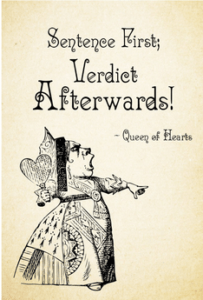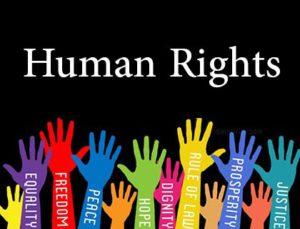 Britain’s decision to take military action against Syria is like Alice in Wonderland: ‘sentence first-verdict afterwards’, says Lord Singh
Britain’s decision to take military action against Syria is like Alice in Wonderland: ‘sentence first-verdict afterwards’, says Lord Singh
Lord Singh, the Director of the Network of Sikh Organisations (NSO) has said that the Cabinet’s decision to deploy military strikes against President Assad is reminiscent of Alice in Wonderland, citing Alice’s bogus trial when the Queen says, ‘sentence first – verdict afterwards’.
In a scathing speech, the crossbencher spoke out powerfully against the rank hypocrisy of Western military interventions in the Middle East. He cited Britain’s morally reprehensible arms supplies to Saudi Arabia, which continue to be deployed in a bloody war in Yemen against Houthis. Moreover he said he was personally ‘appalled’ when a Minister told him we should not raise human rights issues with China when talking about trade – the Minister’s suggestion here being trade trumps human rights.
Speaking from a Sikh perspective and challenging the established orthodoxy of today’s ‘power-bloc politics’ Lord Singh said, ‘Sikh teachings on the prevention of conflict almost parallel the preamble to the Universal Declaration of Human Rights, formulated after the horror of the Second World War, and they stress the dignity and equality of all members of our one human family. They also legitimise the use of military force only as a last recourse when all other means have failed.’
Lord Singh said, that he found propaganda justifying military intervention in reported government statements as ‘morally questionable and hypocritical’. He said, Assad is no angel, but like many other leaders in the region we [Britain] have ‘propped up’ a brutal dictator. He said countries that we don’t like become to be known as ‘regimes’, and Assad himself has been referred to as a ‘monster’, which could be counterproductive if Britain is to be involved in future negotiations on the Syrian issue, something the PM has indicated to be a possible solution to the conflict.
He said, ‘I am saddened by the hypocrisy of our government and the governments of the USA and France. While wringing their hands about the monster Assad’s supposed chemical weapon attack on little children, they have all in the last two or three of weeks signed billion-dollar deals with Saudi Arabia to export arms for use in Yemen, so that Saudi Arabia can strut its military might in the Middle East with the continued bombing of men, women and little children in Yemen.’
He went on, ‘We are then expected to believe that President Assad, having secured control of much of the country, suddenly decides to launch a chemical attack on a children’s hospital. It could be true, although it sounds implausible, but it gave the US President an opportunity to withdraw from the conflict flourishing his military might. France and Britain dutifully backed him in a combined military strike against Assad. President Trump predictably tweeted “Mission accomplished”. It is sad that our PM should feel duty-bound to back military action prior to any investigation. I thought that it was only in Alice in Wonderland that we had the saying, “Sentence first—verdict afterwards”.’
In conclusion he said, ‘The whole concept of supposed strategic interest has, over the centuries, been shown to be deeply flawed and a recipe for continuing conflict. A Christian hymn reminds us: “They enslave their children’s children who make compromise with sin”. It is a truth echoed in Sikh teachings and in the Universal Declaration of Human Rights. The only strategic interest worth pursuing is respect for human rights and social justice for all and for future generations in our highly interdependent world.’
Lord Singh’s full speech can be read here.


